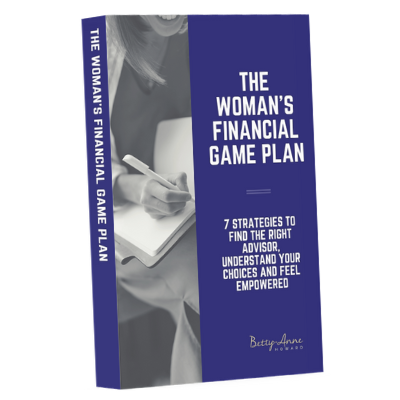
For many young people, financial planning and financial literacy is something that only those with a lot of money need to think about.
That’s what I used to think too.
I’m a recent university and college graduate. But it was a summer spent working construction, and more recently, some proofreading and editing for my mentor, Betty-Anne Howard, that made me realize that financial literacy and planning can help anyone – even an impoverished new grad like me!
Two years ago, I took a job as a construction laborer on a 10-story apartment going up in Ottawa’s Sandy Hill neighborhood. Over the five months, I was there, I got to see first-hand how these huge, complex projects are actually built.

The site and an adjacent apartment
I did things like sweep up debris, direct traffic, install waterproofing membrane and break up excess concrete. Pretty insignificant, eh? I thought so too.
The power of financial literacy
Then one summer, Betty-Anne, who is a certified financial planner, and a High Impact Speaker, asked me to review a fun (yes, fun!) online financial literacy course she developed.
I really liked the way her course demystified financial planning. It used simple, clear language instead of jargon. It broke down information into bite-sized pieces and grouped it in easy to understand sections.
The financial literacy course also framed concepts using helpful, concrete examples that are easily transferable to real life. One of my favourite sections of the course is entitled “Low Hanging Fruit”; it is a list of all the things you can do right now to improve your financial scenario.
For myself, just dealing with this low hanging fruit has helped me eliminate some debt, save more, and quite simply given me more freedom to pursue the things I’m passionate about.
Here are a few of the things I’ve put into practice as a result of going through this course:
Making a budget
Making a budget is essential. This might seem like a chore meant to restrict you. But it’s actually liberating, and even fun to take an honest look at where your money goes on a monthly or even weekly basis. Examine your spending habits and you’ll discover the money you forgot you had.
Paying yourself first
This goes along with budgeting. It simply involves putting aside the money you need to cover your expenses and bills as soon as you get paid. Doing this will not only give you peace of mind, but it will also help you keep money in your pocket instead of paying extra for things like overdue bills or credit card interest.
Small sacrifices
Paying attention to the little, seemingly insignificant purchases goes a long way.
Something as simple as bringing your own coffee and lunches to work instead of buying them every day? This can save you an enormous amount of money. Even if you’re only spending five dollars per day on coffee and a snack in the morning, it adds up fast. Doing that five days a week adds up to $100 per month or $1200 per year!
By the way, Betty shares some of her top tips for saving money for a financially secure future in this post.
Ask yourself what’s really important to you. This helps you make those decisions. Contrast the small, insignificant purchases against the larger goals and dreams you have for your life. Forgoing that six-dollar latte is a lot more tolerable when you can think about the awesome resort you’re travelling to in a few months with the money you’ve been saving.
Reading this course helped me to understand that by doing some really small, simple things, I could make a tangible difference to my financial circumstances.
I realized that it’s not that much different from what I was doing in my construction job. Picking up a bunch of construction debris and wheeling it off the site doesn’t seem like much, but it was one tiny step that cleared the way so the builders could get on with what they needed to do.
And guess what? Today, that raw construction site is a fully completed 10-story building.
The path to financial literacy and success
Improving your relationship with money, honing your financial literacy skills, and creating a financial plan isn’t something that’s going to happen overnight. But there is one trick that’s going to make your financial journey easier, and ultimately more successful: Knowing there is no trick.
Your path to financial success and making your dreams a reality is an ongoing process. You work at it a little every day.
And living for today doesn’t mean you can’t plan for the future. Here’s why.
By starting out with your own low hanging fruit, and taking those first steps, you will immediately begin to see a difference in your finances. But more importantly, you’ve begun laying the foundation for a positive, mutually beneficial relationship with your money.
Your dreams won’t come true out of nowhere. But you can build something incredible if you concentrate on the process and take it one piece at a time.
If you’d like to get in touch with Betty to discuss your financial future, don’t hesitate to contact her today!
Did you enjoy this article? Here are three more you should also have a look at:
How to Create Your Life Legacy & Change the World
Who do you want to benefit from your money when you are no longer here?
How to Magnify Your Charitable Gift Giving
This article was originally published on November 8th, 2017, and has since been updated.

Jack Seymour
Jack Seymour BA (Hons) Dip. Public Relations, is a communications and public relations consultant, who lives and works in Kingston, Ontario. He enjoys snowboarding, golf, hockey, weight training, and writing.






0 Comments